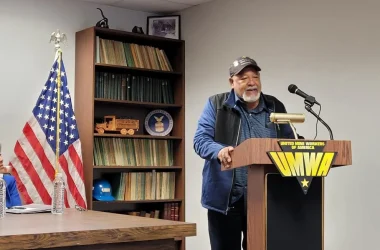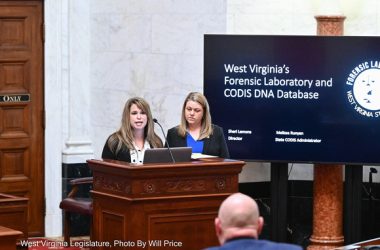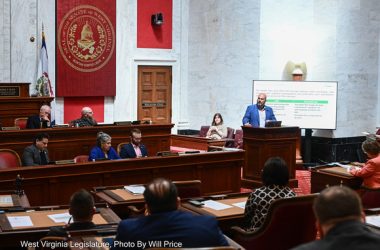Charleston, W.V. – A recent poll by Orion Strategies among historic likely voters in West Virginia tested a number of issues facing the state’s legislature this session.
“We fielded a statewide live-telephone survey of historic, likely voters centering on the main issues listed by legislators in both parties and the Governor’s State of the State Address,” said Orion Strategies pollster Graham Godwin. Co-tenancy is an issue that has come up before the legislature this year. Respondents were provided a scenario regarding ten people jointly owning a tract of mineral rights with seven of the owners wanting to sell for natural gas drilling and the other three who do not. When asked if the seven who wish to sell have the right to do so if the other three would be paid their proportionate share of the compensation, 64% said yes with only 22% saying no. When broken down by party, the results were: Democrats 66% yes and 23% no, Independents 54% yes and 20% no, Republicans 68% yes and 20% no.
Co-tenancy is an issue that has come up before the legislature this year. Respondents were provided a scenario regarding ten people jointly owning a tract of mineral rights with seven of the owners wanting to sell for natural gas drilling and the other three who do not. When asked if the seven who wish to sell have the right to do so if the other three would be paid their proportionate share of the compensation, 64% said yes with only 22% saying no. When broken down by party, the results were: Democrats 66% yes and 23% no, Independents 54% yes and 20% no, Republicans 68% yes and 20% no.
In the last few weeks, drug issues have been among the top headlines with announcements by United States Attorney General Jeff Sessions stating that the federal government was going to crack down on states that allowed the use of marijuana.
“West Virginia voters support the legalization of marijuana, for medicinal use if prescribed by a doctor, at a rate of 67% for and 30% against,” said Godwin. “That is a six-point increase over a similar poll conducted one year ago.”
When asked if marijuana should be legal for recreational use by adults 21 and over, West Virginia voters have increased their support to 34% for and 62% against – whereas one year ago those numbers were 26% for and 70% against.
When asked about opioid issues in West Virginia, voters provided some key insights:
- 53% of voters believe the opioid/drug epidemic has gotten worse and 34% believe it has remained the same. Only 5% believe it has improved.
- 49% of respondents believe that medically-assisted treatments should be given priority in dealing with opioid and heroin addiction, with 33% suggesting abstinence only programs.
- 41% of respondents say that addiction is a moral weakness and 33% believe it is a medical condition. 19% suggested that is both.
- 67% of West Virginia voters know someone who is suffering, or who has suffered from addiction to oxycodone, heroin or other opioids.
- 73% of respondents support providing free long-term birth control to women addicted to opioids
“In regards to education issues, West Virginia voters were asked if they support a proposal to elect the members of the state Board of Education – which are currently appointed by the Governor,” said Godwin. “73% of voters support this change currently being considered in the state legislature with 21% believe the positions should be appointed.”
Respondents were also asked about their beliefs toward teacher compensation in West Virginia. 72% of respondents stated that it was too low, with 19% reporting it was about right and only 2% saying it was too high.
Voters in West Virginia believe that the state is heading in the right direction by a 44% plurality with 38% saying it is not.
Only 20% of respondents reported that they had watched Governor Justice deliver the State of the State Address last week. Of those who viewed it, 54% rated it positively.
In regards to the state’s economy lagging behind the nation’s, West Virginia voters blame the opioid/drug epidemic as the single largest impact at 36%. This is followed by 17% who cite the state’s reliance on fossil fuel industries, 14% blaming the state’s lack of highway infrastructure and 12% listing the state’s lack of a college-educated workforce.




